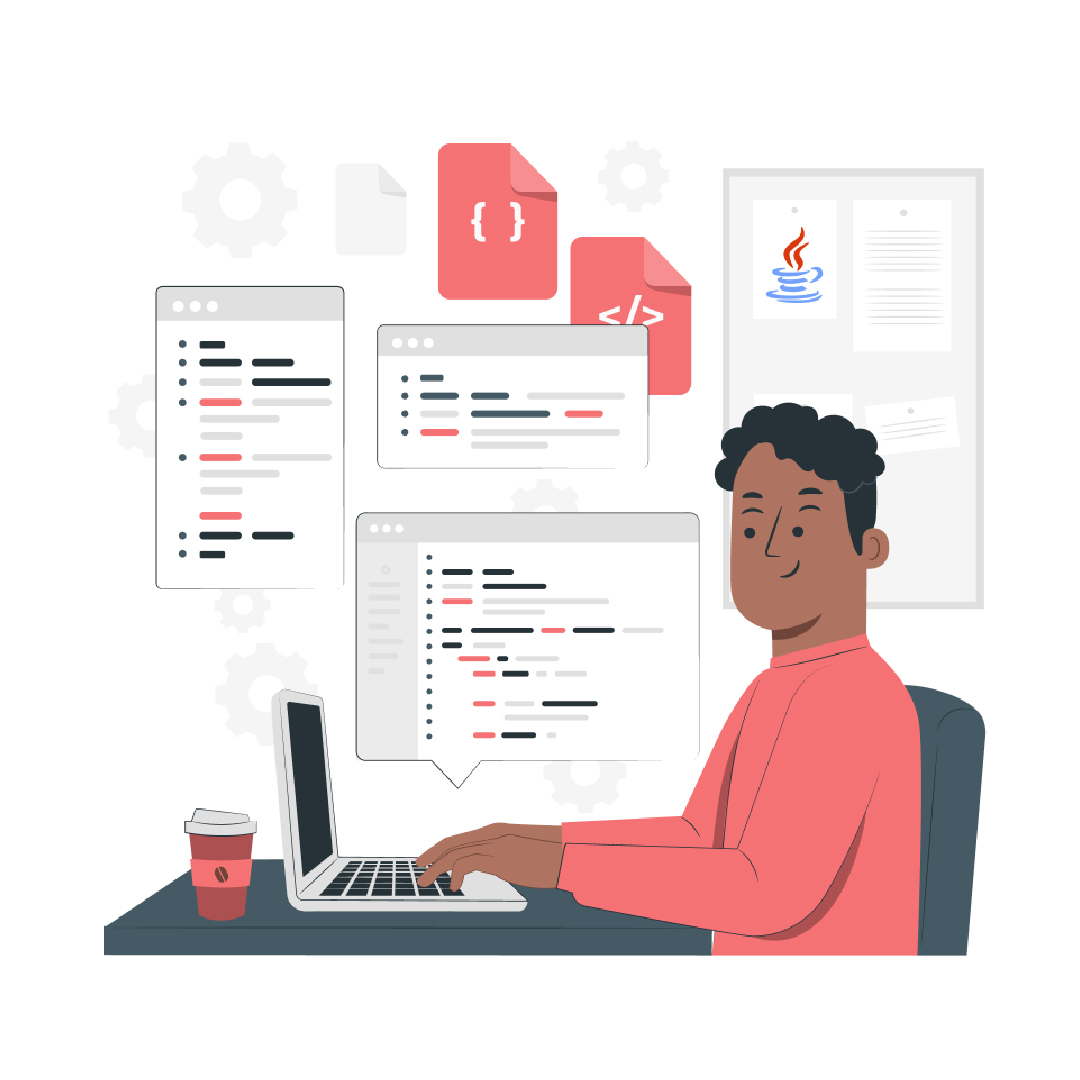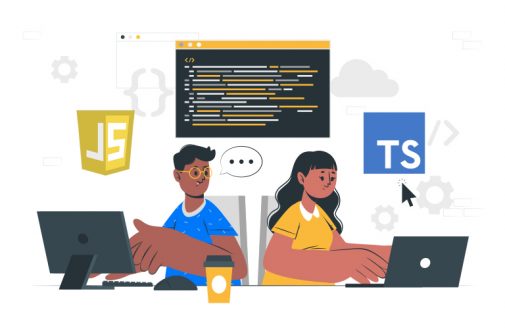When it comes to object-oriented programming (OOP), nothing beats JAVA. A platform to make applications and share them across the systems, it is one of the most used programming languages in the IT industry.
Therefore, Java developers have become an absolute necessity for any organisation. However, Java’s changing nature and its prevalence in the industry can sometimes make it challenging for employers to hire remote Java developers for their development needs. For your Java needs, You can source your talents from social communities where the talent is waiting to be discovered.
Here, we have created a checklist, a complete guide, to pick the right person that caters to what you are looking for and promises sustained individual and organisational growth.
Who is a Java Developer?
More than 9 million developers use Java as their programming language thanks to its ease of use and its demand. Today, more than 7 billion devices make use of Java, including 3 billion mobile devices, according to the codeinstitute. The developers have built all the popular apps that we use.
A Java developer works in designing, developing, and building applications with dynamic elements of Java.
Skillset to Look Forward To
While hiring a remote Java developer, you may come across many profiles. Sometimes, it may get tough to filter who would be the perfect candidate for the skills your project would require.
Here is the skillset to look forward to when hiring the best remote Java developers. Remember, a Java Developer may not need to possess all these skills; it will completely depend on your project needs.
1. Fundamentals of Java
These would be the basic skill set of a Java developer. The core Java fundamentals include object-oriented programming concepts and static, nested and default interface methods. They should also be familiar with serialization and deserialization.
2. Web Technologies
Hiring remote Java developers should also be familiar with Java web technologies like HTML, CSS, JavaScript, JSP, and Servlet API. These skills will help in making your project dynamic and engaging.
3. Java Frameworks
Frameworks are templates for reference for Java developers. It helps developers create new applications without writing the code from scratch. Some popular frameworks include Spring; Java Server Faces, Hibernate, Google Web Toolkit, etc.
4. Design & Architecture
These are some advanced Java developer skills that an experienced candidate would possess. These skills include creational, structural, behavioral, and miscellaneous design patterns.
5. DevOps Tools
The DevOps tools are not limited to Java programming only. They help in the continuous integration and development of your project. Some of the handy DevOps tools your candidate may know about our Apache ANT, Git, Docker, Apache Maven, Jenkins, Docker, Chef, etc.
6. DBMS
If you are hiring remote Java developers for a project that deals with Big Data, they should understand the nuances of database management systems. Some advanced skills would include SQL (structured query language), NoSQL, Oracle, Tableau, Apache Hadoop, etc.
7. Testing Tools
A developer writing code with any programming language should know how to test it once written. Tools like JUnit, Selenium, TestNG, and Mockito are some of the popular Java unit testing frameworks used for testing Java codes.
8. Class Design Principles
The core concepts of Java ensure that the application a developer has created is easy to understand, maintain, debug, refactor, and modular. It will save time and effort in development without compromising the quality. These concepts for object-oriented designs are represented by the acronym: SOLID. It stands for Solid responsibility, Open/Closed (expansion and modification), Liskov substitution, Interface Segregation, and Dependency Inversion.
9. Java Virtual Machine
Java Virtual Machine (JVM) allows Java applications to write once and run anywhere. This would make them platform independent. The JVM also analyses and executes Java bytecode. Understanding the functioning of JVM is not an essential skill to have, but at the same time, it is an added bonus.
10. Soft Skills
Last but not least, apart from these technical skills, the remote Java developer should also have some soft skills. With a remote work setup, communication and listening skills are a must. They should also be efficient in managing time working remotely. Lastly, they should be able to work in a team without physically being present with them. Now that you know the skillset to look forward to in your prospective remote Java developer, here are the different types of remote Java developers with different types of skills.
Types: Fresher and Experienced Remote Java Developers
Entry Level Java Developer
When hiring remote Java developers, the organization’s requirements make the candidate eligible or non-eligible. A basic yet solid understanding of the language and familiarity with classes, threads, and servlets would be enough for entry-level remote Java developers.
Intermediate Java Developer
For a more intermediate candidate with an experience of up to 2 years, all the skills mentioned above are necessary, along with the ability to write clean, readable Java code. They should understand J2EE, analysis, patterns of OOPs, and some of the web services based on Java.
Experienced Java Developer
Moving on, senior Java developers will not only possess the qualities mentioned above, but one of the advantages of having an experience of more than two years will also make them proficient in code optimisation. For example, they should be able to choose suitable algorithms to write with the minimum types of variables used.
Java Architect
You might need the best of the best for the roles requiring multiple algorithms with a higher number of exceptions, more data types, and platforms like Java Virtual Machine for memory management and safety. You may also need someone handy with design patterns and SQL (Structured Query Language).
Steps of Hire Remote Java Developers
Now that we know the different types of Java developers and how they will support your project or organisation, now is the time to understand how to get them on board.
1. Analysing the Needs of Staffing & Approach to Hiring
Once you are clear with the requirements for your project, it will give you an idea about how many remote Java developers you will need for the project. More candidates may mean that your project will get finished in less time. However, it also calls for more management. Also, determine if you are looking for full-time or part-time remote Java developers. When you know the right number of candidates for your project, you need to determine your hiring model. An outsourcing hiring model is a conventional way to go with remote Java developers. However, once again, it will depend on your needs.
2. Job Description (JD) for Remote Java developers
What does a Java developer do? Wherever you post your jobs for hiring a remote Java developer, they should be clear enough to attract the right people. This step will make everyone’s life way easier if done right and save you a ton of time.
- Company Introduction: Start with your organisation profile. Let them understand what you do and how long you have been doing it. Make them familiar with your products and services with a short paragraph.
- Job Responsibilities: Let them know what you expect them to do, what their typical day at the office would look like, the teams they would be interacting with, and what other responsibilities they may have to take, if there are any.
- Must Haves: Here, you will note what they should have in their arsenal to make it work. List out the requirements and skills that are not negotiable for the profile you are looking for. However, be reasonable with your demands and keep them following the industry norms.
- Good to Haves: Your perfect candidate for Java may or may not have these qualities. If they possess these qualities, they would be preferred over the other candidates, but if they don’t, it won’t hurt their application.
3. Determining Pay-scale for Remote Java developers
The remote Java developer salary bracket would be considered based on the following factors.
- Experience: This one is simple. With more experience, the salary expectations would be higher. Industry research will help you determine the salary for Java developers based on their experience level.
- Location: Where your organisation is located also plays an important part. A tier 2 city might significantly differ from a tier 1 city based on the quality of life and living costs.
- Skills: At the end of the day, talent scouting is the most fun you can have while hiring a remote Java developer. The more polished and unique their skills, the higher their expectations will be.
4. Interviewing Remote Java Developers
Once you zero in on the Remote Java developers, the next step is to assess their skills practically. On more occasions than one, you may even want to assess their quick thinking and problem-solving abilities on the spot. With tools like Google Forms and SurveyMonkey, you can easily create an assignment for candidates with multiple-choice questions and ask them to write simple Java programs. For video conference interviews for hiring a remote Java developer, you may have a questionnaire set for the potential candidates based on their experience level. Here are some samples:
- Define class and object, and use them in an example.
- What are some of the methods to create objects in Java?
- What are static methods and static variables?
- What is the difference between JDK, JRE, and JVM?
- What is a JIT compiler?
What is the final keyword in Java? These are just some examples, and the list is endless. Once again, it depends on what you want from the candidate and what fulfills your organisation’s requirements.
Conclusion
There are numerous benefits to Outsourced IT Services for your project. When the location does not bind you, you have access to worldwide candidates and their knowledge. There are no overhead costs to remote staff, such as office space and equipment.
Suppose you also look forward to hiring remote Java developers for your project. In that case, our team of developers at Infiraise will prove to be the perfect fit for all your high-grade project requirements with the best tools and technologies.
TypeScript Vs JavaScript: Which One To Choose?
Despite their similarities, the distinctions between JavaScript vs TypeScript determine whether one is truly superior to the other. This article aims to describe the current main differences between the two…
What Is The Best Java Framework For Desktop Applications?
The Java programming language can be used to make multi-platform applications like Android, web, and desktop applications. No surprise 33.27% of all developers are using Java as their programming language….
Why Do You Need Angular Development For Your Project?
What is Angular Development? Angular is a web-application framework written in Typescript. It is led by the Angular team at Google, along with other individuals and corporations. Angular is by…
Inquiry
Let’s get in touch













